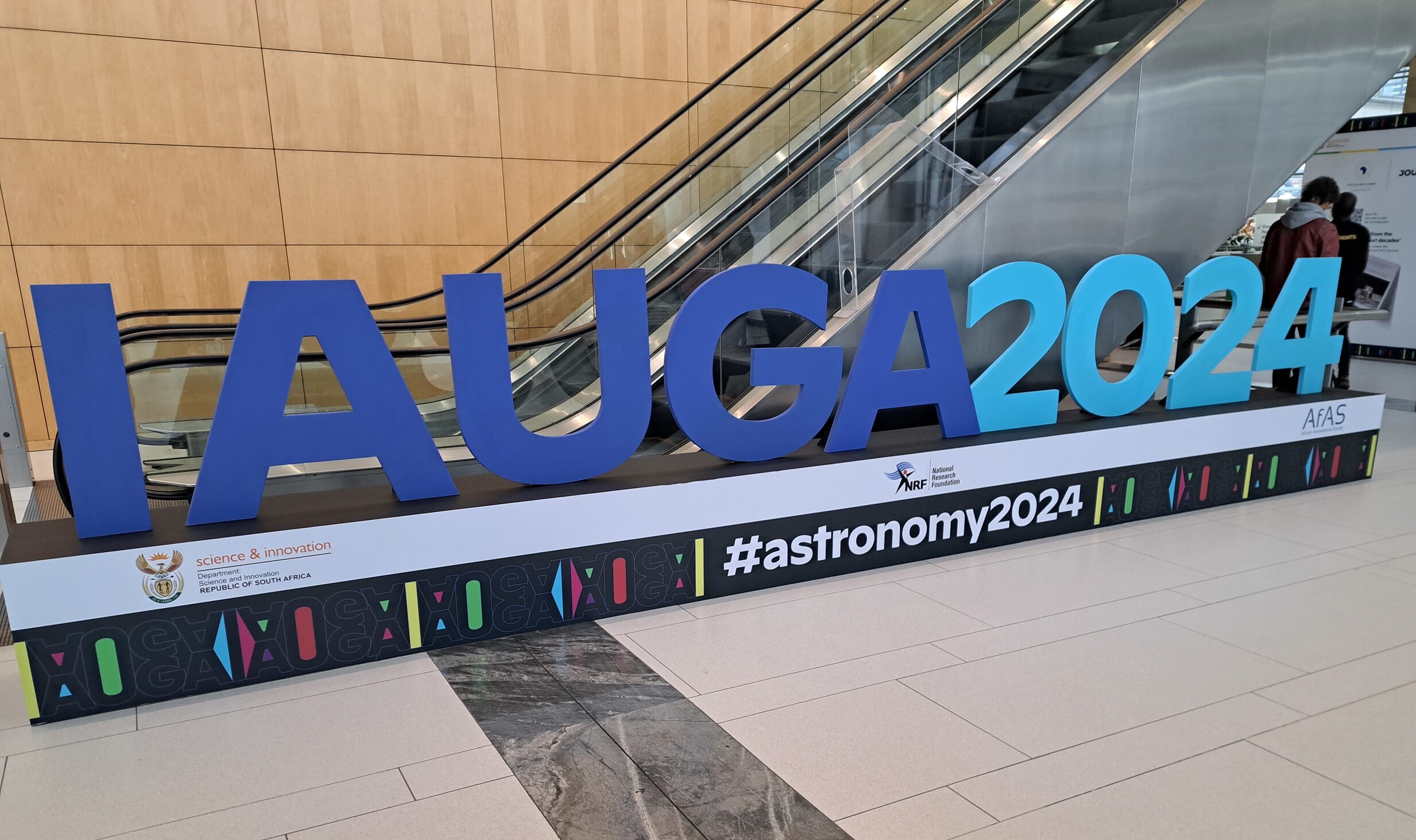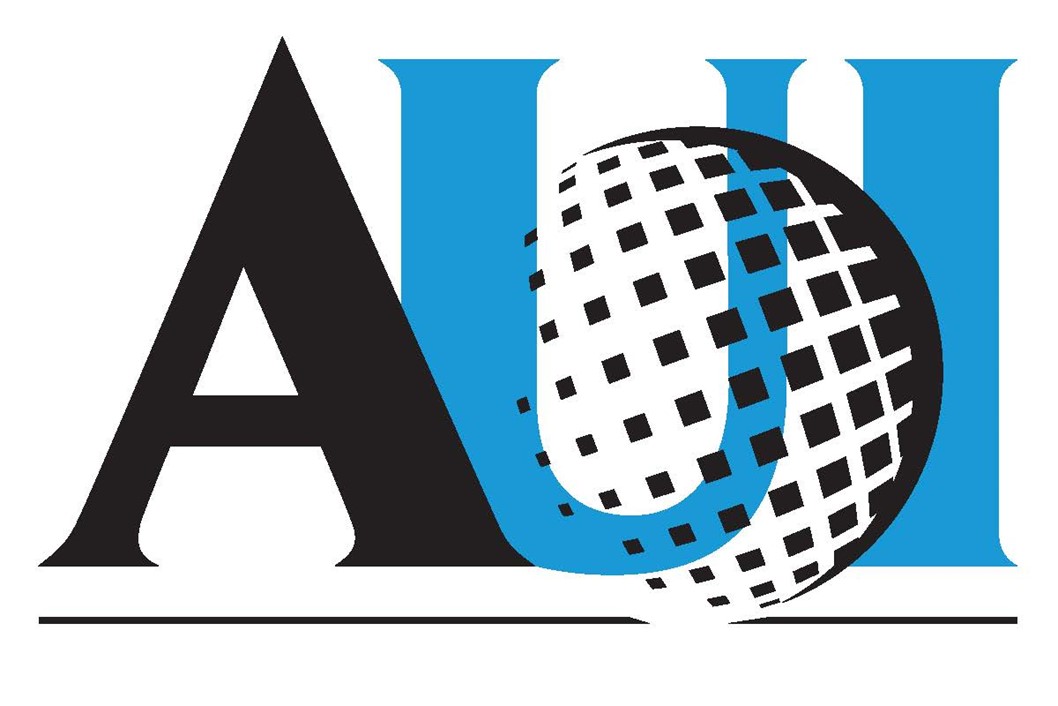The U.S. National Science Foundation National Radio Astronomy Observatory (NSF NRAO) has received funding to expand its study of an invisible—and crucial—scientific and technological resource: the radio spectrum.
Recent News
Largest Oort Cloud Comet Ever Observed Reveals Its Secrets with ALMA’s Powerful Gaze
A team of astronomers has made a groundbreaking discovery by detecting molecular activity in comet C/2014 UN271 (Bernardinelli-Bernstein)—the largest and second most distantly active comet ever observed from the Oort Cloud.
Unusual stellar nurseries near our galaxy’s center puzzle scientists
New research led by Dr. James De Buizer at the SETI Institute and Dr. Wanggi Lim at IPAC at Caltech revealed surprising results about the rate at which high-mass stars form in the galactic center of the Milky Way.
Investing in the Next Generation of Researchers

Credit: Brian Kent, NRAO/AUI/NSF
Laying the Groundwork for Future International Scientific Collaborations
CAPE TOWN, SOUTH AFRICA—Astronomers from 107 nations convened at the International Astronomical Union’s (IAU) 2024 General Assembly. Among them, 10 early career researchers had the opportunity to engage with colleagues from around the world and better understand how their studies fit into the broader research community. Funding for travel and accommodations was made possible through the Junior Member Grant Fund, established in partnership between the Heising-Simons Foundation (HSF), Associated Universities Inc. (AUI) and IAU.
The Junior Member Grant Fund created an invaluable opportunity for early-career astronomers to network and meet colleagues from all around the world, exchange their experiences, promote their research and expand their knowledge on various areas of research. Junior members also had the opportunity to meet astronaut Sian Proctor.
One key topic was the IAU Office of Astronomy for Development (IAU-OAD). OAD aims to further the use of astronomy, including its practitioners, skills and infrastructures, as a tool for sustainable development globally. International collaboration is increasingly important for astronomy whether it is for sharing dry, dark skies or teaming for global scale research projects, such as the Event Horizon Telescope.
“Being able to attend the IAU GA was a very personally and professionally productive experience, as I got to share both my IAU-OAD work and exoplanet research while connecting with a broader network of other scientists, educators and community members than ever before,” said Rena Lee, an early career researcher from Institute for Astronomy, University of Hawai’i at Mānoa. “I am extremely grateful to the HSF, AUI and IAU for their support.”
“Career development is an important and too often neglected part of work force development,” said Tiffany Stone Wolbrecht, interim director of education and public engagement at AUI. “It’s important to invest in a diverse group of early career researchers to retain them in the field and to inspire them to shape the future of research.”
Participating scholars included Mojgan Aghakhanloo, University of Virginia; Karina Barboza, The Ohio State University; Bettymaya Foott, University of Arizona; Jessica Heim, University of Southern Queensland’s Centre for Astrophysics; Vincent Ledvina, University of Alaska Fairbanks; Rena Lee, University of Hawai’i at Mānoa; Cecilia Mac Cormack, NASA Goddard Space Flight Center; Krislyn Sourivong, Virginia Tech; Yu-Hsuan (Eltha) Teng, University of California San Diego; and Lieke van Son, Flatiron Institute’s Center for Computational Astrophysics and Princeton University.
AUI’s donors, partners and sponsors help bolster the STEM workforce development pipeline through accessible, diverse and engaging programs that begin in early childhood and continue through career development. Together, we can help spark a new generation’s love and respect for science so they can continue to explore, solve grand challenges, and help make scientific and technological breakthroughs possible.
Recent News
NSF NRAO Leads Critical Spectrum Studies to Safeguard Radio Astronomy
The U.S. National Science Foundation National Radio Astronomy Observatory (NSF NRAO) has received funding to expand its study of an invisible—and crucial—scientific and technological resource: the radio spectrum.
Largest Oort Cloud Comet Ever Observed Reveals Its Secrets with ALMA’s Powerful Gaze
A team of astronomers has made a groundbreaking discovery by detecting molecular activity in comet C/2014 UN271 (Bernardinelli-Bernstein)—the largest and second most distantly active comet ever observed from the Oort Cloud.
Unusual stellar nurseries near our galaxy’s center puzzle scientists
New research led by Dr. James De Buizer at the SETI Institute and Dr. Wanggi Lim at IPAC at Caltech revealed surprising results about the rate at which high-mass stars form in the galactic center of the Milky Way.
